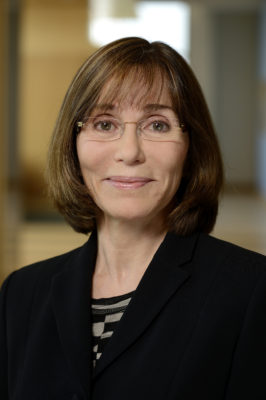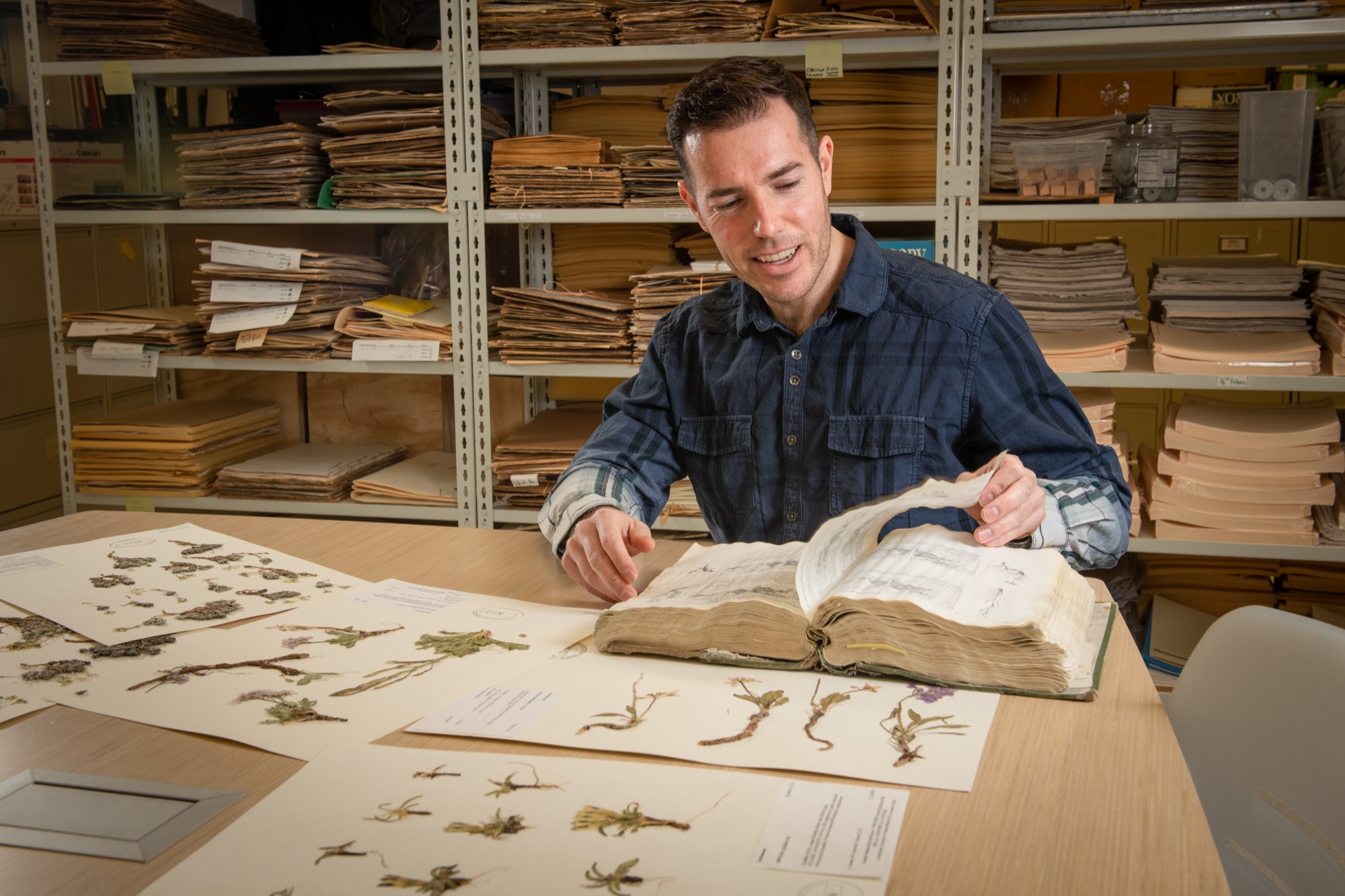Resilience during uncertainty
by Matt Jardin |

Bloomberg Distinguished Professor, author and nursing science alumna Dr. Kathleen Sutcliffe, B.S. Nursing Science '78, returns to give the keynote address at the annual Homecoming Breakfast. (Photo courtesy of Kathleen Sutcliffe)
If you had to pick one word to sum up the kind of year 2019 has been for UAA, a fitting word to use could be uncertainty, considering developments such as the fluctuations in the statewide University of Alaska system's state-funded budget, the declaration of financial exigency and its recent reversal, and the move toward a single accreditation.
Almost serendipitously, the keynote speaker for this year's annual Homecoming Breakfast knows a thing or two about uncertainty. In fact, Bloomberg Distinguished Professor of Business and Medicine at Johns Hopkins University and UAA nursing science alumna Kathleen Sutcliffe, Ph.D., has built her career studying how organizations in high-reliability industries - such as commercial aviation, nuclear power, chemical processing and naval aircraft carrier operations - can prepare and deal with inevitable uncertainty.
To say she wrote the book on the topic would be an understatement - she's written three.
"We can never know all the ways that organizations can fail, so you just have to be as prepared as possible," says Sutcliffe. "All organizations are going to have surprises, just like all human beings, but resilience is more ordinary than we think. In part it's facing adversity with other people."
While the topic of anticipating and coping with uncertainty can be applied to virtually any industry, Sutcliffe relates it most to the field of health care, and for good reason. Before studying management and organizational behavior, Sutcliffe originally worked in nursing.
Born in Fairbanks, Sutcliffe's family moved to Michigan when she was young. Eventually, she found her way back to Alaska, first through a summer job at Denali National Park - then known as McKinley National Park - between semesters at the University of Michigan.
Immediately after graduating with her first bachelor's degree, Sutcliffe decided to make the move to Alaska more long term. Almost as if to make up for all the years she spent away, she lived in Girdwood with her late husband whom she met on the job in Denali, managed his state representative campaign in Juneau, and even worked as a deckhand on a crab fishing boat in Dutch Harbor.
Eventually, Sutcliffe found her way to another Alaska institution: UAA. Here, she earned her bachelor's in nursing science in 1978, paving the way for her to earn a master's in nursing from the University of Washington and hold positions as health care program manager for the State of Alaska, and director of health and social services at Aleutian Pribilof Islands Association (APIA).
Naturally, Sutcliffe drew heavily from her nursing education during her time at APIA. More unexpectedly, however, was the impact a seemingly unrelated class would have on her.
"I had taken a class at the University of Alaska. It was a basic HR management course and I absolutely loved it," says Sutcliffe. "Then when I was at the APIA, I knew I was really in the wrong thing. I was always thinking about organization. I started wondering why organizations were doing this, and why this entity was doing that, and what about all these political applications, etcetera. I just wanted to know why systems were working the way they were working."
Sutcliffe made the transition from nursing to earn her Ph.D. in management and organization theory at the University of Texas-Austin. While there, she met her future collaborator and co-author, social psychologist Karl Weick, whose research on high-risk systems and the culture of high-risk organizations influenced her own work on understanding how organizations could be designed to be more resilient.
On the surface, Sutcliffe acknowledges that the jump from health care to organizational theory can appear vast. However, she explains that the two fields are closer than they seem, noting that both draw on her fascination to learn how complex systems - humans on one hand, companies on the other - operate, how they can be protected and how they can recover.
Over the past several decades, in addition to her scholarship, Sutcliffe has passed on what she knows to future business leaders, first as a professor at the University of Minnesota, then returning to her first alma mater, the University of Michigan, before landing her most recent position at Johns Hopkins University.
"I want people to have some basic understanding of human and team behavior so that they can be better decision makers and better sense makers," says Sutcliffe. "To be able to make sense of the world around us and have better ideas of ways that we can intervene makes things better for all of us. I hope that my research is scholarly in a way that's not totally divorced from the world at large. I think it's important to prepare students and I'm having a great time doing that."
Written by Matt Jardin, UAA Office of University Advancement
 "Resilience during uncertainty" is licensed under a Creative Commons Attribution-NonCommercial 4.0 International License.
"Resilience during uncertainty" is licensed under a Creative Commons Attribution-NonCommercial 4.0 International License.














